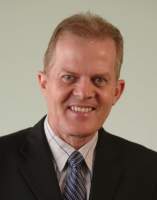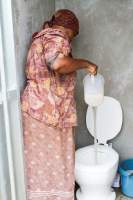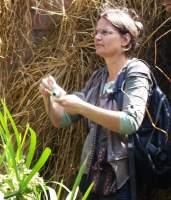- Forum
- categories
- Sanitation systems
- Toilets with urine diversion
- UDDTs (urine-diverting dry toilets)
- Information about large scale UDDT use in Durban (eThekwini) and elsewhere in South Africa
Information about large scale UDDT use in Durban (eThekwini) and elsewhere in South Africa
10.2k views
- neilmacleod
-

- Consultant in water and sanitation, Honorary Research Fellow at UKZN
Less- Posts: 8
- Karma: 5
- Likes received: 9
Re: Ethiopia-Adama Uni UDDT project seems O&M to blame again!
Urine collection in Durban now runs to thousands of litres a week and we are working with EAWAG and the local university UKZN, as part of a Bill and Melinda Gates funded project, to develop a logistics model to collect and process urine as efficiently as possible. This model is still in the early stages of development, but has not stopped the collection of urine.
The technology to process urine and recover the nutrients is now a reality and I do not think it will be long before we can all see the benefits of these initiatives and be able to promote the use of UDDT's with more success.
The one remaining matter to respond to is the toilet itself. Until we have a dry toilet pan that is self cleaning and has a way of separating the user from the pit contents below, the flush toilet is always going to be preferred by communities
Consultant and Honorary Research Fellow
Durban
South Africa
This email address is being protected from spambots. You need JavaScript enabled to view it.
Please Log in to join the conversation.
You need to login to reply- jacquesru1
-
 Less
Less- Posts: 2
- Karma: 1
- Likes received: 2
Re: Information about large scale UDDT use in Durban (eThekwini) and elsewhere in South Africa
Elisabeth von Muench has requested that I post some answers to the Municipalities that have and still is using UDDT sanitation systems in South Africa.
The main municipality is eThekwini Municipality in Durban South Africa with more than 80000 double chamber UDDT units constructed from 2001 to date (past 12 years).
Other mentionable Municipalities include Umhlatuzi Municipality (Richardsbay area) with more than 30000 double chamber UDDT units completed with more to follow.
Buffalo City Municipality (East London area) who has completed about 20000+ single chamber UDDT units, with additional work currently in progress.
Winterveld Municipality with approximately 10000 'flushing' UDDT units (this is where the hand washing water is used to flush out the urine separation part only).
The balance across the Free State Province in different smaller communities, which included Kimberly and other areas. I do not have the exact figures for these areas, but it is expected to exceed 5000 units.
I hope that this answers some of the question and I will gladly forward any additional information and/or answer more questions.
Jacques Rust
Technical Manager
Envirosan Sanitation Solutions
Office: (+27) 31 700 1866
e-mail: This email address is being protected from spambots. You need JavaScript enabled to view it.
Web: www.envirosan.co.za
Please Log in to join the conversation.
You need to login to reply- former member
-
Less
- Posts: 101
- Likes received: 3
Re: Recent paper on UD toilets
Attached please find a recently published paper entitled User perceptions of urine diversion dehydration toilets: Experiences from a cross-sectional study in eThekwini Municipality by Elisa Roma, Kerry Philp, Chris Buckley, Scelo Xulu and Dianne Scott.
This paper describes a very large survey (over 17 000 households) undertaken during December 2010 and January 2011 in Durban of households which had been provided with Urine Diversion Dehydrating Toilets (UDDTs).
Subsequent to the survey:
* remedial work has been undertaken by the municipality (correcting construction defects and poor user education).
* The Bill and Melinda Gates Foundation funded the VUNA - Nutrients from Urine project at EAWAG. A component of the field work being undertaken in Durban is to expand on the this survey. (discussion about VUNA project available here: forum.susana.org/forum/categories/98-res...and-and-south-africa)
* Follow-up papers are in preparation.
Chris Buckley
Pollution Research Group University of KwaZulu-Natal DURBAN 4041 South Africa
(Water SA is an open access journal, that's why the journal article can be attached here)
ABSTRACT
The current environmental challenges that most middle- and low-income countries have been experiencing has led to new environmentally sustainable and economically viable sanitation solutions, such as waterless systems with source separation of human waste. We conducted a cross-sectional study in eThekwini municipality to explore the post-implementation challenges of urine diversion dehydration toilets (UDDTs) after a decade of installation and the adaptive processes necessary to increase the sustained use of the toilets. A structured questionnaire was administered to 17 499 households in 65 rural and per-urban areas of eThekwini using mobile phone technology. Results report low levels of satisfaction with the facilities as well as an association between perceived smell in the toilets and malfunctioning of the pedestal, and low use of UDDTs when a pit latrine is present in the dwelling perimeter. Conclusions relate to the importance of educational and promotional activities that stress the economic return derived from reusing urine and excreta in agricultural activities.
++++++++
Note by moderators: This post was made by a former user with the login name ChrisBuckley who is no longer a member of this discussion forum.
This message has an attachment file.
Please log in or register to see it.
Please Log in to join the conversation.
You need to login to reply- hoffma
-
 Less
Less- Posts: 20
- Karma: 6
- Likes received: 21
it seems that you are a new writer just as Mark and me? Are you new to the subject? Anyway, you are welcome. You were asking for publications. The Durban expierence is here on SuSanA: www.susana.org/en/resources/case-studies/details/791
I was very impressed when I visited the eThekwini Water & Sanitation Company in 2011, not only due to the 70- or 80.000 UD toilets but also due to the concept and consequent realization of the mission to provide adequate sanitation service (and water) for all people, which includes modern wastewater treatment plants, operation of public toilets in slums, emptying service for Pit Latrines, UD toilets and a lot of investigation. It is more than 1 year ago, most actual information about the UD projects in South Africa you will find by the provider ENVIROSAN www.envirosan.co.za , or by the Pollution Control Group from KwaZulu Natal University, or in the proceedings of the Durban Fecal Sludge Conference last year: www.pid.co.za/index.php/fsm2-conference , Good look and best wishes from Brazil to South Africa, HEIKE
Please Log in to join the conversation.
You need to login to reply- former member
-
Less
- Posts: 101
- Likes received: 3
Re: Information about large scale UDDT use in Durban (eThekwini) and elsewhere in South Africa
Best Regards,
Gertrude Matsebe
Gertrude Nomsa Matsebe Senior Researcher Competence Area: Spatial Planning and Systems Built-Environment Unit, CSIR PO Box 395, Pretoria
++++++++
Note by moderators: This post was made by a former user with the login name gnmatsebe who is no longer a member of this discussion forum.
Please Log in to join the conversation.
You need to login to reply- joeturner
-
 Topic AuthorLess
Topic AuthorLess- Posts: 717
- Karma: 23
- Likes received: 185
The problem seems to be particularly in places like Durban where the overwhelming majority have flush and those who are offered dry alternatives (sometimes, perhaps) perceive them to be inferior.
I'm really talking about perceptions here, I'm accepting of the technical fact that there are good reasons not to have flush toilets.
Please Log in to join the conversation.
You need to login to replyWe are also a water stressed country so sewering every settlement in the country is just not achievable, without even considering the financial and environmental costs (we get more pollution from poorly functional waterborne systems than we do from dry systems).
The best example of UD usage is SA is Durban. Although not everyone who has them likes them, although some are not used and some have been owner converted to flush/septic tanks, the overwhelming majority are used. You can't please all the people all the time.
Dave
Please Log in to join the conversation.
You need to login to reply- joeturner
-
 Topic AuthorLess
Topic AuthorLess- Posts: 717
- Karma: 23
- Likes received: 185
I thought this section was particularly interesting:
The findings of the study revealed that most of the users preferred a flush toilet to the UDD toilet and would not recommend it to other people. They were also willing to pay extra for flushing water.
Despite the fact that one of the benefits of installing the UDD toilet is the production of fertiliser from nutrients in human excreta, participants did not buy into this idea as most of them felt that they did not need or use it in the garden. They considered it waste, and hence would rather have a flush toilet.
Moreover, participants perceived the UDD toilets to be unpleasant and unhealthy due to offensive odours (Duncker et. al ., 2006).
All these resulted in low acceptance of the toilet.
Non- acceptance of the UDD toilets ultimately resulted in conversion of the system into a waterborne system
It seems that if you are aware of flush toilets, you consider dry toilets to be inferior.
Please Log in to join the conversation.
You need to login to reply- Forum
- categories
- Sanitation systems
- Toilets with urine diversion
- UDDTs (urine-diverting dry toilets)
- Information about large scale UDDT use in Durban (eThekwini) and elsewhere in South Africa







